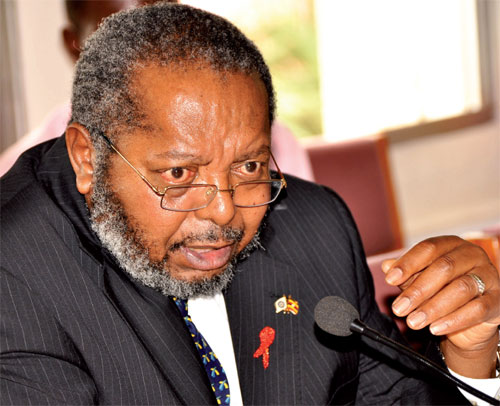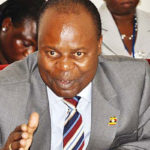Bank of Uganda aims to maintain foreign exchange reserves at four to four and half months of imports; this was revealed as the International Monetary Fund (IMF) staff concluded their visit to the country recently.
In Uganda, foreign exchange reserves are the foreign assets held or controlled by the country central bank. The reserves are made of gold or a specific currency. They can also be special drawing rights and marketable securities denominated in foreign currencies like treasury bills, government bonds, corporate bonds and equities and foreign currency loans.
The Foreign Exchange Reserves in Uganda increased to US $3600.55 million in March from US $3522.47 million in February of 2018. Foreign Exchange Reserves in Uganda averaged US $1299.11 million from 1986 until 2018, reaching an all-time high of US $3654.45 million in December of 2017 and a record low of US $5.10m in February of 1989.
Meanwhile, IMF team led by Axel Schimmelpfennig commended the Ugandan authorities for the progress in setting economic policy objectives for the financial year 2018/19 and the medium-term. The country is preparing for the budget to be read on June 14, 2018.
It was disclosed that Uganda’s fiscal policy for now seeks to keep public debt at a sustainable level which requires raising tax collection and prioritizing spending needs, while protecting key infrastructure projects and social expenditures. BOU in its monetary policy targets core inflation of 5 percent.
It was also said that government’s structural reforms would focus on revenue mobilization, public financial and investment management, reducing domestic arrears, enhancing financial sector stability and development, and putting in place the remaining elements of the framework for managing future oil revenues.
The IMF mission reached an agreement with the government of Uganda on a possible three-year program under many elements of the Policy Coordination Instrument (PCI), but IMF said further progress in some areas was still needed. The PCI is a non-financing tool open to all members of the IMF.
It enables them to signal commitment to reforms and catalyze financing from other sources. The establishment of the PCI is part of the Fund’s broader effort to strengthen the global financial safety net—a network of insurance and loan instruments that countries can draw on if confronted with a crisis.
Particularly the PCI aims to help countries formulate and implement a macroeconomic policy agenda to: prevent crises and build buffers against external shocks, enhance macroeconomic stability; and address macroeconomic imbalances.
“Once the FY18/19 budget has been approved as agreed, the mission could resume discussions,” according to ISMAILA DIENG, IMF’s press officer.
The mission met President Museveni, Finance Minister- Matia Kasaija, BoU Governor Tumusiime-Mutebile, Permanent Secretary/Secretary to the Treasury, Keith Muhakanizi, Members of Parliament, private sector representatives, and senior government officials.







